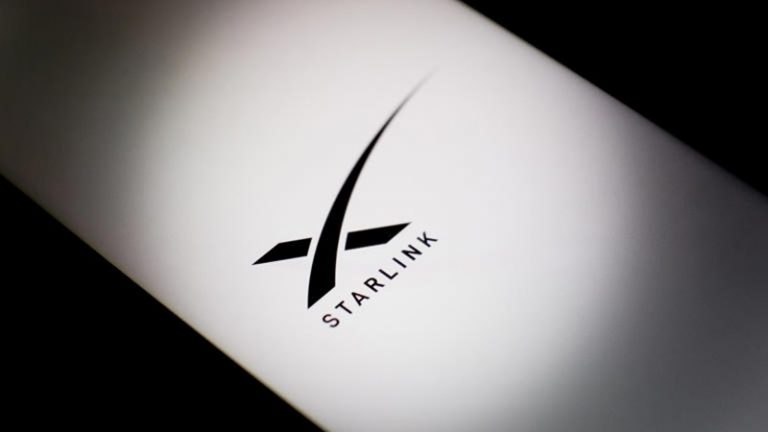
The Nigerian Communications Commission (NCC) has announced its intention to sanction Elon Musk’s internet company, Starlink, for increasing its subscription prices in Nigeria without regulatory approval.
This comes after the company unilaterally raised its monthly subscription fees and hardware costs, sparking concerns from stakeholders who accused the NCC of applying double standards by allowing Starlink’s price hike while restricting similar actions by local telecom operators.
Last week, Starlink increased its monthly subscription price in Nigeria by 97%, moving from N38,000 to N75,000, and also raised the cost of its Starlink kit (hardware) by 34%, from N440,000 to N590,000. The company justified these changes by citing “excessive inflation” in Nigeria as the reason behind the adjustments. However, this price hike was implemented without the NCC’s approval, contravening Sections 108 and 111 of the Nigerian Communications Act, 2003, and violating the conditions of Starlink’s license regarding tariffs.
Register for Tekedia Mini-MBA edition 19 (Feb 9 – May 2, 2026): big discounts for early bird.
Tekedia AI in Business Masterclass opens registrations.
Join Tekedia Capital Syndicate and co-invest in great global startups.
Register for Tekedia AI Lab: From Technical Design to Deployment (next edition begins Jan 24 2026).
Responding to the issue, the NCC’s Director of Public Affairs, Dr. Reuben Muoka, expressed the regulator’s surprise at Starlink’s unilateral decision, emphasizing that the company had filed a request for a tariff review, but the NCC had yet to communicate a decision before Starlink moved forward with the changes. Muoka noted that Starlink’s action undermined regulatory stability in Nigeria’s telecommunications sector and that the Commission would take appropriate enforcement measures against any licensee who violates these regulations.
“We were surprised that the company jumped the gun by announcing price changes after filing a request to the Commission seeking approval for price adjustment for which the Commission was yet to communicate a decision.
“The action of the company appears to be a contravention of Sections 108 and 111 of the Nigerian Communications Act, 2003, and Starlink’s License Conditions regarding tariffs.
“The Commission will therefore take appropriate enforcement measures against any action by a licensee that is capable of eroding the regulatory stability of the telecommunications industry,” he stated.
Sections 108 and 111 of the Nigerian Communications Act clearly define the NCC’s authority over the regulation of tariffs for licensed operators. According to Section 108, license holders must seek and receive NCC’s approval before implementing any changes to their tariffs or charges. The law prohibits companies from unilaterally setting prices, ensuring that pricing adjustments remain within the regulator’s control to protect consumers and maintain stability in the telecom industry.
Section 111 further empowers the NCC to impose financial penalties on any operator that exceeds the tariff rates approved by the Commission. This section reinforces the regulator’s mandate to ensure compliance, regardless of the operator’s global stature.
Telcos Push to Raise Tariff
Starlink’s price hike has rekindled debates within Nigeria’s telecom sector. Local telecom operators, under the umbrella of the Association of Licensed Telecommunications Operators of Nigeria (ALTON) and the Association of Telecommunications Companies of Nigeria (ATCON), have long called for a review of telecom tariffs due to rising inflation and increased operational costs in the country. These operators argue that the telecom sector is the only industry that has not adjusted its prices despite Nigeria’s challenging economic environment.
On Tuesday, social media influencers were pushing the call for internet data tariff review on X, a trend believed to have been sponsored by telcos.
Despite these calls, both the NCC and the Minister of Communications, Innovation, and Digital Economy, Dr. Bosun Tijani, have resisted tariff hikes by local operators, urging them to find innovative ways to offset inflationary pressures and operational costs.
Implications for the Telecom Sector
However, industry experts have warned that Starlink’s rapid price increase and the resulting regulatory fallout could have far-reaching implications for the Nigerian telecom sector. As a high-profile entrant into Nigeria’s internet market, Starlink has already positioned itself as a crucial player, particularly in delivering internet services to underserved and rural areas.
Thus, many believe that NCC’s move to sanction Starlink would send a deterrent message to both foreign and domestic telecom operators, who may wish to enter the Nigerian market. However, others note that the sanction reinforces the NCC’s role in protecting consumers from arbitrary price changes, ensuring that operators remain accountable for their actions. This, they say, may also prompt other international companies entering the Nigerian telecom market to pay closer attention to local regulations and work more closely with authorities to avoid similar challenges.
For Starlink, these sanctions could result in heavy financial penalties among others, stymieing its ability to expand further in Nigeria.



